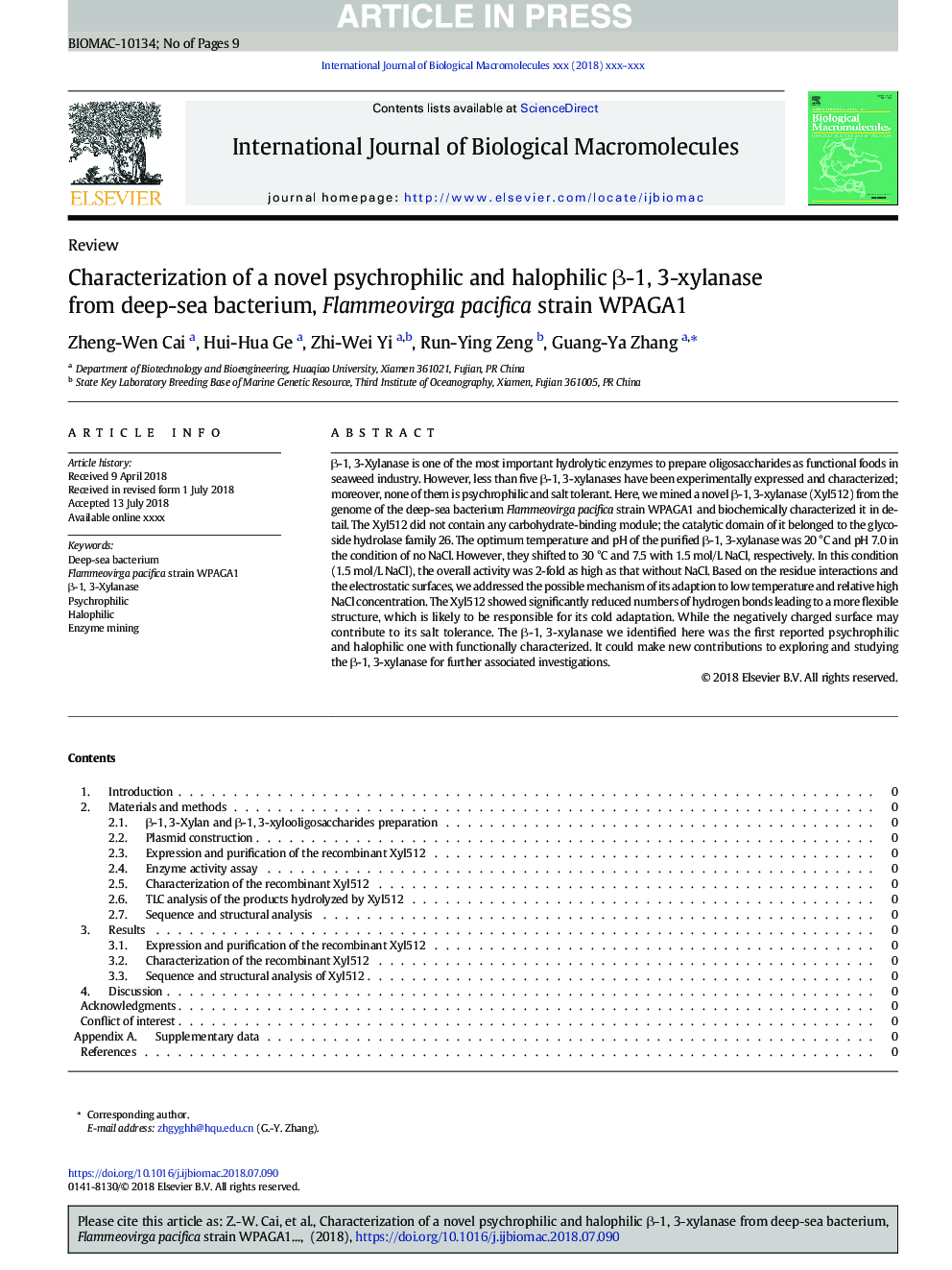| Article ID | Journal | Published Year | Pages | File Type |
|---|---|---|---|---|
| 10156917 | International Journal of Biological Macromolecules | 2018 | 9 Pages |
Abstract
β-1, 3-Xylanase is one of the most important hydrolytic enzymes to prepare oligosaccharides as functional foods in seaweed industry. However, less than five β-1, 3-xylanases have been experimentally expressed and characterized; moreover, none of them is psychrophilic and salt tolerant. Here, we mined a novel β-1, 3-xylanase (Xyl512) from the genome of the deep-sea bacterium Flammeovirga pacifica strain WPAGA1 and biochemically characterized it in detail. The Xyl512 did not contain any carbohydrate-binding module; the catalytic domain of it belonged to the glycoside hydrolase family 26. The optimum temperature and pH of the purified β-1, 3-xylanase was 20â¯Â°C and pHâ¯7.0 in the condition of no NaCl. However, they shifted to 30â¯Â°C and 7.5 with 1.5â¯mol/L NaCl, respectively. In this condition (1.5â¯mol/L NaCl), the overall activity was 2-fold as high as that without NaCl. Based on the residue interactions and the electrostatic surfaces, we addressed the possible mechanism of its adaption to low temperature and relative high NaCl concentration. The Xyl512 showed significantly reduced numbers of hydrogen bonds leading to a more flexible structure, which is likely to be responsible for its cold adaptation. While the negatively charged surface may contribute to its salt tolerance. The β-1, 3-xylanase we identified here was the first reported psychrophilic and halophilic one with functionally characterized. It could make new contributions to exploring and studying the β-1, 3-xylanase for further associated investigations.
Related Topics
Life Sciences
Biochemistry, Genetics and Molecular Biology
Biochemistry
Authors
Zheng-Wen Cai, Hui-Hua Ge, Zhi-Wei Yi, Run-Ying Zeng, Guang-Ya Zhang,
